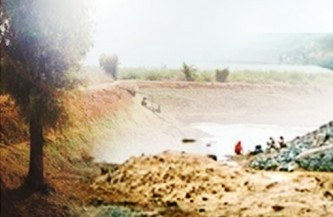Modi@8: How PM Modi Revolutionised India with 8 Disruptions

From getting a heart valve for a kid to selling off junk for crores, PM Modi has brought a fundamental transformation in India’s culture of governance. He has scrapped VVIP Culture, taught India to dream big, and revitalised all that had turned moribund under previous regimes by sheer force of will.
Continuity can be a problem as well as an enabler, depending upon what is being carried forward and reproduced as a matter of culture. In the name of continuity, democracies across the world have carried the flab of anti-people baggage in several forms of misgovernance, India being no exception. But a disruption was caused in 2014 when Prime Minister Narendra Modi came to power.
The vicious cycle, kept alive by one government after another, of silently accepting age-old problems afflicting the system as given and permanent characteristics of a dysfunctional system beyond repair was broken.
PM Modi has proved that disruptions are good and for the greater good. It just needs force of will to do it.
With the prime minister recently marking eight years in office, the time is apt to take a look at the eight behavioural changes that he has brought about in the country’s governance.
Dismantling VVIP Culture
The first and foremost change that PM Modi needs to be lauded for is how he brought about a fundamental transformation in the working style of the government. For long it was considered normal that rules applied differentially to the common man and those in power despite the latter being people’s representatives.
As soon as PM Modi took office, he ended the VVIP culture. He made every public servant accountable for every penny that was being spent from the government coffers. Union Minister Dr Jitendra Singh recollects one such incident. Once the prime minister noticed that there was a huge pile of broken furniture and other junk dumped behind his South Block office. Evidently, it was a practice that was going on for years. He immediately ordered the area be cleared and the junk lying there be sold off. The result: the junk fetched the government a sum of Rs 62 crore!
Recounting yet another incident where PM Modi put an end to the undue privileges enjoyed by those holding public office, Union Minister Mukhtar Abbas Naqvi reminisces one particular day when PM Modi decided to have food from the Parliament canteen. He realised the food which common people had to buy for Rs 100 outside was being made available for just Rs 10 to the Members of Parliament. The PM immediately stopped the canteen subsidy and also effectively put an end to several other such privileges invariably hitherto dubbed as the ‘laal batti’ culture.
India Must Dream
The second behavioural change brought about by PM Modi was that he taught India to dream what might at first look impossible. Citing one such example, Balakrishna Goenka, Chairman of Wellspun Group, remembers how the goal of a $5-trillion economy seemed to be an unachievable feat when PM Modi first announced it. But now, it no longer seems so, with several economists predicting that the goal can be achieved by 2024 itself! This happened since PM Modi had a sound knowledge of the strengths and weaknesses of the Indian economy. He has ensured that growth and development are focused on the MSME sector and agriculture.
Former head of the Indian Space Research Organisation (ISRO) K Radhakrishnan recalls how just three days after becoming the prime minister, Modi met him to discuss how the space sector could contribute to the growth of the nation. After understanding the possibilities, PM Modi brought about the space sector reforms. He introduced a system where private players could become co-passengers in the realm of space activity due to which, there are at least 55 space start-ups in the country today and some of them have even become major players.
Last Mile Delivery of Governance
The third commendable feat achieved by PM Modi is the speedy delivery of last mile governance to the last man on the social ladder. Dr Randeep Guleria, Director of All India Institute of Medical Sciences (AIIMS). Delhi, cites an example of how Ayushman Bharat became a game-changer. Dr Guleria recalls the story of a girl who needed a valve-replacement surgery, but could not afford the cost of the valve and was on medical treatment for several years. With the launch of Ayushman Bharat, she got the valve-replacement done. He would never be able to forget, he says, how grateful the girl’s mother was to the prime minster.
PM Modi is a leader whose name has become a byword for swift action. Member of Parliament Ganesh Singh says if a policy decision is announced in Parliament, it is implemented within 48 hours!
Singh recounts his own experience of finding GoI officers collecting data from the farmers of his village right after the launch of a particular policy.
Vinod Kumar Yadav, former CEO of the Railway Board, also had a similar experience to share where PM Modi ordered that facilities such as restaurants, shopping centres etc. should be constructed at all the railway stations so that people living nearby could also use them.
Team India
The fourth behavioural change that PM Modi affected was instilling the spirit of being Team India across the entire system. The idea of governance prevalent before PM Modi took over the reins of the nation was to divide India in different regions for ‘ease of governance’.
An episode shared by Union Minister Kiren Rijiju brings to light how PM Modi brought about a sea change in the entire outlook of the system. He made the unconventional decision of taking the DGP/IGP conference that was always held in Delhi to Guwahati with the aim of making it more focussed.
He was of the firm belief that an important conference such as this should be held away from the power-centre as there were chances that all officials would get busy in other engagements. PM Modi prepared an agenda for the conference and for the first time, a prime minister was in the conference for three days, to the utter dismay of the police officers.
Another decision where PM Modi’s farsightedness came to the fore was his conviction that the ‘Beti Bacho Beti Padhao’ scheme did not need a brand ambassador. Former bureaucrat Preeti Sudan cites how PM Modi told everyone that this scheme should be seen as the Fourth Battle of Panipat. Consequently, it bore results since the country came together to save its daughters.
New Perspectives, Fresh Ideas
PM Modi has infused the entire governance with new perspectives and the fresh ideas. Former TRAI chief R S Sharma explains this by stating how PM Modi was not interested in seeing the project proposals they had prepared for Digital India. What he wanted was for them to share their vision. It changed the whole context and they realised that their aim should be to convert India into a digitally empowered society.
Revitalising the moribund
The sixth change brought about by PM Modi was to focus on sectors hitherto neglected such as sports, the country’s North East region and facilities for the differently-abled. He did so by implementing ideas that were never conceived of in Indian governance.
Former minister Rajyavardhan Rathore throws light on one such policy-decision by PM Modi. For a long time, Indian athletes were provided with all the training facilities, but were never given any sum for personal expenses. This always discouraged the families to send their children to pursue a career in sports. Taking cognisance of the situation, PM Modi announced that Rs 50,000 be paid to athletes each month for their personal expenses if they were selected for training. This revolutionised the Indian sports in more ways than one and positive results became clearly visible in no time.
The government has also been its lending full support to Paralympians to either train in India or abroad, as pointed out by Devendra Jhajharia, the first Indian Paralympics player to win two gold medals at the Paralympics.
Another area that was neglected for too long was India’s North East. PM Modi, after coming to power, decided that it was high time to go beyond India’s Look East Policy and replace it with Act East. True to his words, development finally reached the region. Tapir Gao, Member of Parliament, vouches for this, pointing at how roads of the North-East now have two lanes, several decades after Independence.
Political Will, Bold Decisions
The seventh drastic change happened right after PM Modi came to power and became more pronounced during the Covid-19 pandemic. PM Modi showed political will to take bold decisions and act bravely to take on challenges.
An example of this is how PM Modi implemented GST in the country. Hasmukh Adhia, former Finance Secretary points out how governments had lost power in other countries when they tried to implement GST, but PM Modi stood his ground and made it happen, keeping in view the larger interests of the nation.
During Covid-19 pandemic too, it was this spirit of endurance which he had instilled in the system which made all the ministers come together and work towards mitigating the crisis.
Union Minister Smriti Irani recalls how India never manufactured any PPE kits till before the pandemic struck. But Team Modi ensured that all the raw materials and machines were put in place to meet the steeply rising demand.
Balram Bhargav, Director General, ICMR recounts that during this period how PM Modi scheduled a meeting in the month of April or May 2020 just for vaccine development and promised all the support. This was even before the world came to know that such a possibility existed.
India as Vishwaguru
PM Modi revolutionised India’s status among the comity of nations at the global level. He has started a mission for regaining India’s lost civilisational glory and make India the Vishwaguru.
In this series, the first was the renovation of the Kashi Vishmwanath Dham. Bimal Patel, the renowned architect, recollects how talks of renovating this temple were first initiated by Gandhiji, but none of the governments acted on it.
In 2016-17, it was Modi who pointed out that people often associate Varanasi with unkempt surroundings and that this had to change. Union Minister Prahlad Patel tells the story of how after PM Modi came to power, almost 20-22 historical statues have been returned to India.
Undoubtedly, PM Modi understands the power of India’s civilisational ethos and the need to harness and leverage the country’s soft power. He has been constantly striving to enhance people-to-people links. Indian parliamentarian Vinay Sahasrabuddhe says that up until 2014, there was no system of keeping records of foreign students. Under the leadership of Prime Minister Modi an alumni portal was created and now when ministers visit a country, they make it a point to visit these students.
Evidently, a silent revolution has gripped India under the leadership of Prime Minister Modi and changes, from subtle to those more visible, have been rolled out that will have a long-lasting yet rejuvenating effect on the country’s polity and society. It will ensure that India remains firmly on the path of ever-expanding ambit of development and reclaims its rightful place in the world order.
[Source: FirstPost]

















